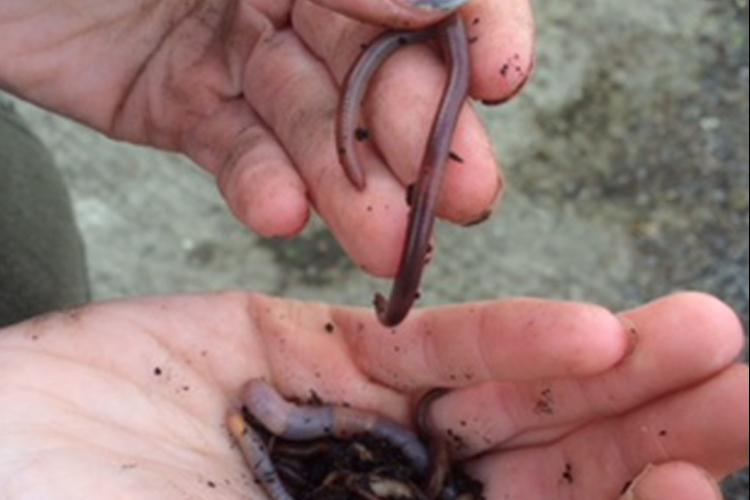The Wonder of Worms

Amongst all the exciting tools, products and techniques available to the gardener the importance of earthworms in the garden can be often overlooked. But they are TRUE GARDEN HEROES, not only free if the conditions are right but also available in a cast of thousands.
How They Help
Nicknamed 'natural soil engineers', the burrowing action of these wriggly critters helps to open up channels and openings within the soil that permit water and oxygen to permeate and carbon dioxide to disperse, all beneficial to plant growth. The channels also help drainage, preventing waterlogging and can be utilised by growing roots.
Aces at decomposition, earthworms eat organic matter such as leaves within and on top of the soil, breaking it down into smaller components that bacteria and fungi can then devour, releasing nutrients for plants in the process. The worm casts or faeces they produce are fine and crumbly and help improve the soil structure.
As they move through the soil they naturally mix the levels within it adding in organic matter as they go, so improving its fertility.
For generations of gardeners used to double digging heavy soils such as clay, they are the cavalry. Instead of combining or digging in lots of organic matter, go natural and mulch in the autumn with a thick 75 - 100mm layer of well-rotted compost such as manure and let the earthworms do the work for you. No digging will also help preserve and improve the soil's natural structure.
Their colour provides a visual guide to the level of oxygen in the soil - pink worms are healthy with good access to oxygen in the soil whilst grey worms can indicate low levels of oxygen.
Making Them at Home
Build on kids' natural fascination with these garden angels by getting them involved in mini-projects in the garden
Mulch your soil when it is moist with organic matter such as peat-free compost and leaf mould to feed the earthworms and maintain the soil's moisture. This helps reduce watering too.
Collect and stack up small piles of sticks, leaves and prunings in the garden which will slowly start to break down and feed the earthworms.
Go for the natural look in your garden over the winter. Along with leaving seed heads on and avoiding cutting back in the autumn, embrace the natural slightly messy look and leave some faded leaves and toppled stems on the ground to decompose and provide food for the earthworms.
Cut back or avoid altogether chemical pesticides in the garden as they will be digested by the earthworms.
Invest in or create your own wormery for kitchen waste. There are lots of useful videos showing how to make a wormery online plus kits available. They are good for creating compost and a nutritious liquid that can be watered down for use as a fertiliser. Plus they shed a light on a very important process that goes on out of sight beneath the soil.
